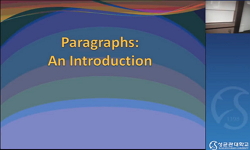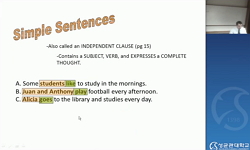This research looks into the revision processes of young learners of English as a Foreign Language (EFL) through both pilot and experimental studies. The pilot study comparatively analyzed the error revision strategies in children and adult English le...
http://chineseinput.net/에서 pinyin(병음)방식으로 중국어를 변환할 수 있습니다.
변환된 중국어를 복사하여 사용하시면 됩니다.
- 中文 을 입력하시려면 zhongwen을 입력하시고 space를누르시면됩니다.
- 北京 을 입력하시려면 beijing을 입력하시고 space를 누르시면 됩니다.
https://www.riss.kr/link?id=A76444817
- 저자
- 발행기관
- 학술지명
- 권호사항
-
발행연도
2009
-
작성언어
-
- 주제어
-
KDC
375
-
등재정보
KCI등재
-
자료형태
학술저널
- 발행기관 URL
-
수록면
215-247(33쪽)
-
KCI 피인용횟수
0
- 제공처
-
0
상세조회 -
0
다운로드
부가정보
다국어 초록 (Multilingual Abstract)
This research looks into the revision processes of young learners of English as a Foreign Language (EFL) through both pilot and experimental studies. The pilot study comparatively analyzed the error revision strategies in children and adult English learners; the variable relationship of the level of error correction and results of written works of young English learners in rst were used for data analysis. The results of the pilot study show that young EFL learners use a high percentage of revision strategies in terms of sentence and theme correction, whereas adult EFL learners have high rates of revision strategy use in terms of words and phrases. When using words and phrases, young English learners utilize a higher number of deletion and reordering strategies than the adult English learners while adult learners frequently substitute and add words and phrases as a means of error correction. As for the language rule-based approach to esponse to different forms of teacher revisions were compared and analyzed in the experimental study. The t-test, F-test and Duncan,s multiple comparison terevision, the results of the experimental study show no statistical significance in the variation of error correction and results of English written works of young EFL learners. Although the intentionality-based approach to revision did not give statistically meaningful results in terms of error correction of young English learners, the quantitative increase for high results of English written works show statistical significance. As teacher revisional activities based on student intentionality are more effective than language rule-based teacher corrective activities for young EFL learners, it needs to be said that some writing tasks in the English textbooks should be made with the intentionality-based approach to revision in mind.
목차 (Table of Contents)
- 영문초록
- Ⅰ. INTRODUCTION
- Ⅱ. THEORETICAL BACKGROUND
- Ⅲ. RESEARCH METHOD
- Ⅳ. RESULTS
- 영문초록
- Ⅰ. INTRODUCTION
- Ⅱ. THEORETICAL BACKGROUND
- Ⅲ. RESEARCH METHOD
- Ⅳ. RESULTS
- Ⅴ. CONCLUSION AND PEDAGOGICAL IMPLICATIONS
- REFERENCES
참고문헌 (Reference)
1 Dellagnelo,K, "Writing and revision: the effect of individual revision, peer revision and teacher's written feedback in foreign language text production" Universidade Federal de Santa Catarina 1997
2 Dellagnelo,K, "Writing and revision: The effect of individual revision, peer revision and teacher's written feedback in foreign language text production" Universidade Federal de Santa Catarina 1997
3 Smalzer,R, "Write to be read: reading reflection and writing" Cambridge University Press 1996
4 Porte,G, "When writing fails: how academic context and past learning experiences shape revision" 24 (24): 107-116, 1996
5 Hague. A, "Using the computer's readability measure to teach students to revise their writing" 30 (30): 14-17, 1986
6 Hairstone,M, "The winds of change: Thomas Kuhn and the revolution in the teaching of writing" 33 (33): 76-88, 1982
7 Bartholomae,D, "The study of error" Oxford University Press 303-317, 1988
8 Silveira,R, "The relationship between writing instruction and EFL students' revision process" 2 (2): 109-127, 1999
9 Bereiter, C, "The psychology of written composition" LEA 1987
10 Silva,T, "Second language composition instruction: Developments, issues and directions in ESL" Cambridge University Press 162-169, 1990
1 Dellagnelo,K, "Writing and revision: the effect of individual revision, peer revision and teacher's written feedback in foreign language text production" Universidade Federal de Santa Catarina 1997
2 Dellagnelo,K, "Writing and revision: The effect of individual revision, peer revision and teacher's written feedback in foreign language text production" Universidade Federal de Santa Catarina 1997
3 Smalzer,R, "Write to be read: reading reflection and writing" Cambridge University Press 1996
4 Porte,G, "When writing fails: how academic context and past learning experiences shape revision" 24 (24): 107-116, 1996
5 Hague. A, "Using the computer's readability measure to teach students to revise their writing" 30 (30): 14-17, 1986
6 Hairstone,M, "The winds of change: Thomas Kuhn and the revolution in the teaching of writing" 33 (33): 76-88, 1982
7 Bartholomae,D, "The study of error" Oxford University Press 303-317, 1988
8 Silveira,R, "The relationship between writing instruction and EFL students' revision process" 2 (2): 109-127, 1999
9 Bereiter, C, "The psychology of written composition" LEA 1987
10 Silva,T, "Second language composition instruction: Developments, issues and directions in ESL" Cambridge University Press 162-169, 1990
11 Matsuhashi, A, "Revision, addition, and the power of the unseen text" Ablex Publishing Corporation 226-249, 1985
12 Sommers,N, "Revision strategies of student writers and experienced adult writers" Boynton/Cook Publishers, Inc 328-337, 1984
13 Witte,P, "Revising, composing theory, and research design" New Jersey 1985
14 Zamel,V, "Responding to student writing" 19 (19): 79-101, 1985
15 Rohman, G, "Pre-writing: The construction and application of a model for concept formation in writing" US Department of Health, Education, and Welfare 1964
16 Villamil, O, "Peer revision in the L2 classroom: Social-cognitive activities, mediating strategies, and aspects of social behaviour" 5 : 51-75, 1996
17 Mendonca, C, "Peer review negotiations: Revision activities in ESL writing instruction" 28 (28): 745-768, 1994
18 Connor, U, "Peer response groups in ESL writing classes: How much impact on revision?" 3 : 257-276, 1994
19 Richards.A, "Noncontrastive approach to error analysis" 25 : 96-113, 1971
20 Hall,C, "Managing the complexity of revising across languages" 24 (24): 43-60, 1990
21 Britton,J, "Linguistics and Poetics" MIT Press 350-358, 1960
22 Barlett, J, "Learning to revise: Some component processes" Academic Press, Inc 345-363, 1982
23 Dulay, H, "Language two" Oxford University Press 1982
24 Dyer,B, "L1 and L2 composition theories Hillocks' environmental mode and task-based language teaching" 50 (50): 312-317, 1996
25 Scardamalia, M, "Knowledge telling and knowledge transforming in writing" Cambridge University Press 144-175, 1987
26 Selinker,L, "Interlanguage" 10 : 209-231, 1972
27 Keh,L, "Feedback in the writing process: a model and methods for implementation" 44 (44): 294-305, 1990
28 Hayes. R, "Cognitive processes in revision" Cambridge University Press 176-240, 1987
29 Flower, L, "Cognitive process theory of writing" 32 (32): 365-387, 1981
30 Faigley, L, "Analysing revision" 32 (32): 400-414, 1981
31 Larsen-Freeman, D, "An introduction to second language acquisition research" Longman 1993
32 Hull,G, "Acts of wonderment: fixing mistakes and correcting errors" Boynton/Cook Publishers 199-266, 1986
동일학술지(권/호) 다른 논문
-
The Balance of Reflection and Information in English Language Teacher Development
- 한국초등영어교육학회
- Shelagh Rixon
- 2009
- KCI등재
-
- 한국초등영어교육학회
- David Kellogg
- 2009
- KCI등재
-
주제중심의 초등영어 수준별 통합수업의 인지적·정의적 효과
- 한국초등영어교육학회
- 최미정(Choi, Mi Jung)
- 2009
- KCI등재
-
- 한국초등영어교육학회
- 이윤(Lee, Yoon)
- 2009
- KCI등재
분석정보
인용정보 인용지수 설명보기
학술지 이력
| 연월일 | 이력구분 | 이력상세 | 등재구분 |
|---|---|---|---|
| 2027 | 평가예정 | 재인증평가 신청대상 (재인증) | |
| 2021-01-01 | 평가 | 등재학술지 유지 (재인증) |  |
| 2018-01-01 | 평가 | 등재학술지 유지 (등재유지) |  |
| 2017-03-10 | 학회명변경 | 영문명 : The Korea Association Of Primary English Education -> The Korea Association of Primary English Education |  |
| 2015-01-01 | 평가 | 등재학술지 유지 (등재유지) |  |
| 2011-01-01 | 평가 | 등재학술지 유지 (등재유지) |  |
| 2009-01-01 | 평가 | 등재학술지 유지 (등재유지) |  |
| 2007-01-01 | 평가 | 등재학술지 유지 (등재유지) |  |
| 2004-01-01 | 평가 | 등재학술지 선정 (등재후보2차) |  |
| 2003-01-01 | 평가 | 등재후보 1차 PASS (등재후보1차) |  |
| 2002-01-01 | 평가 | 등재후보학술지 유지 (등재후보1차) |  |
| 2000-07-01 | 평가 | 등재후보학술지 선정 (신규평가) |  |
학술지 인용정보
| 기준연도 | WOS-KCI 통합IF(2년) | KCIF(2년) | KCIF(3년) |
|---|---|---|---|
| 2016 | 0.72 | 0.72 | 0.81 |
| KCIF(4년) | KCIF(5년) | 중심성지수(3년) | 즉시성지수 |
| 0.94 | 0.92 | 1.442 | 0.16 |




 스콜라
스콜라






